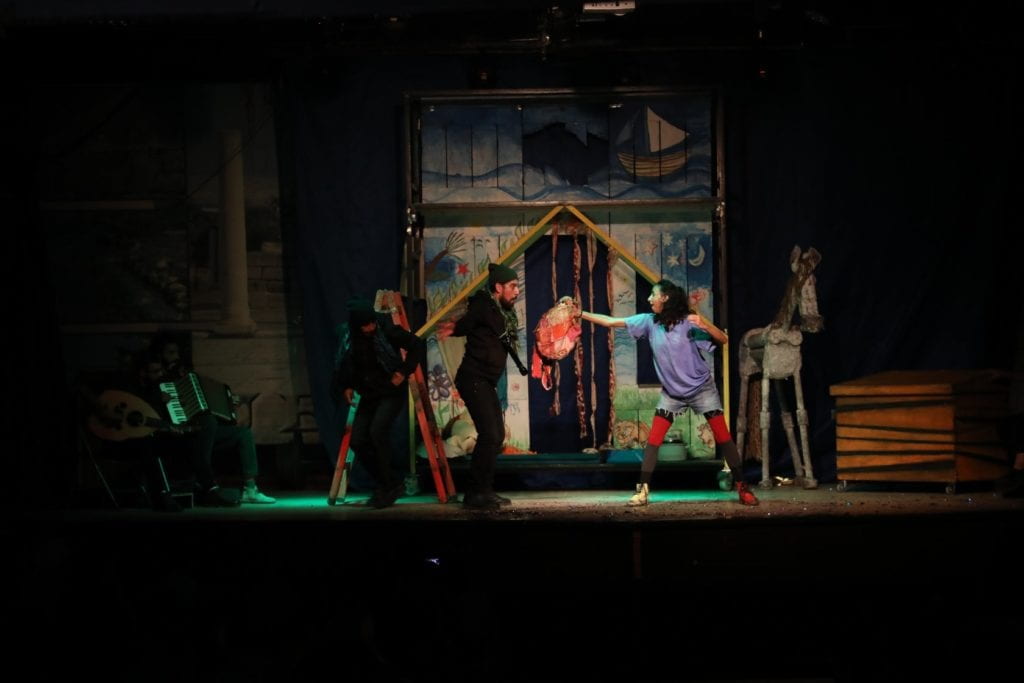Rashi Mishra
The FreedomTheatre
Jenin Refugee Camp, Palestine
As a theater practitioner, I have often come across prejudices associated with the profession, especially being a woman. In most of our patriarchal societies, women who work in theater are considered immoral and indecent, so it did not come as a surprise to me when I saw that women’s participation in TFT theater programs was noticeably less than men’s. There were young girls in photography, film, creative writing, and other workshops conducted by TFT, but theater remains largely a taboo for women in the society.
TFT has been constantly working against this notion and has been trying to encourage more participation from women. “Jinan,” one of the plays produced by TFT, is a beautiful piece of work that breaks many boundaries of fixed gender norms. I got the opportunity to see it when TFT toured with it in West Bank and gave seven performances in Jenin, Ramallah, and Jericho.
The story is an adaptation of the famous Swedish children’s book, Pippi Longstocking, placed in a Palestinian context. The central character, Jinan, is a fun, free-spirited girl. She is witty, brave, and friendly, and is loved by the children in the audience.
The play, I feel, is a brave attempt by TFT–especially when performed in a conservative society like Jenin–to challenge strongly held biases against women in a subtle yet effective manner. Without essentializing gender, the character Jinan connects with the audiences in a way that they laugh with her and root for her, even as she breaks from conventions.
Another project that TFT has started working on in collaboration with another organization, Inter Peace, focuses on increasing young women’s participation in community security and development and the implementation of UNSCR 1325 in the West Bank.1 As part of this project, TFT conducts theater workshops with young women from six different areas of the West Bank, namely Jenin, Tulkaram, Nablus, Tubas, Hebron, and Ya’bad. These areas are critically affected by the occupation, and the women there thus face subjugation from the multiple overlapping dictates of occupation and patriarchy.
Working with young women through interactive theater in these areas, TFT not only engages in capacity-building for them to become active agents of sociopolitical change, but also creates spaces where women can think and express themselves freely and creatively.
The language of “empowerment” is used in the project reports and other documents. Even as I remain skeptical of this word due to its patronizing tone, it is important to note that since these workshops are facilitated by women who TFT trained as actors, the project also benefits these women, because they enter leadership roles. This involvement of local women as leaders dismantles some of the deep-seated biases that most “empowerment” projects remain blinded to.
[1] Resolution 1325 adopted the United Nations Security Council’s emphasis on equal participation of local women in conflict areas in an effort to attain peace and security.